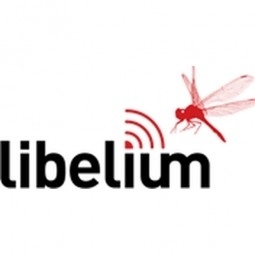Case Studies.
Add Case Study
Our Case Study database tracks 18,927 case studies in the global enterprise technology ecosystem.
Filters allow you to explore case studies quickly and efficiently.
Download Excel
Filters
-
(7)
- (2)
- (2)
- (2)
- View all
-
(5)
- (5)
-
(4)
- (4)
- (2)
- (1)
- View all
-
(3)
- (2)
- (1)
- (3)
- (1)
- (1)
- (1)
- (5)
- (3)
- (2)
- (2)
- (7)
Selected Filters

|
Predicting Eruptions in the Masaya Volcano with wireless Sensors
Volcanoes are one of the most unpredictable and impressive natural phenomenons. Worldwide researchers and scientists have always been trying to discover what happen inside volcanoes to predict future eruptions that will save lives. Their activity has provoked along years great disasters destroying entire settlements with lava flows and also endangering the environment or human health due to gas emanations or ash falls. Some vulcanologists are currently focused on working with the latest technology to monitor in real-time everything that happens inside and outside the crater to predict eruptions. Qwake, a global brand that merges ground-breaking scientific expeditions with cutting edge technology to drive positive change, has trusted in Libelium technology to develop a wireless sensor network in the Mouth of Hell, Masaya volcano in Nicaragua.
|
|

|
Mobile monitoring system: Vehicles with sensors to control air quality in Glasgow
Countries throughout the world have a need, and in many cases a legal obligation, to ensure air quality is meeting specific standards. Policies aim to reduce exposure to air pollution, by reducing emissions and setting limits and targets for AQI. Public authorities in cities have deployed static stations to monitor air quality data for a set of pollutant with specific, and high cost, sensing technologies. These stations provide highly accurate data but their cost limits the quantity of deployments, leaving large gaps in coverage.
|
|

|
Smart Agriculture Project Ensures Crops Health and Reduces Losses
Traditional agriculture companies have applied for ages the same tools and processes that have become antiquated these days. Most of the organizations that work on the farming sector have realized the great potential that cutting edge technologies have to ease their daily works, reduce losses or improve the yield quantity and also product quality. Wireless sensor networks have opened a wide range in terms of possibilities for farmers and agricultural management organizations. Getting real-time information from different water, soil or air parameters of any field allows taking smart and strategic decisions to save resources and optimize yields.
|
|

|
Saving Water with Smart Management and Efficient Systems
Water and electrical supply are two of the main concerns for public authorities. The demand of these resources grow as fast as the population in urban areas so they would become scarcer with the pass of the years. A Technavio report states that the use of smart water management technologies such as Big Data, sensoring and monitoring in real-time can help save more than USD 12 billion revenues for utilities annually.
|
|

|
Enhancing Environmental Control and Reducing Emissions in Nordic Smart Cities
Municipalities and public institutions are concerned about air, water, noise or lighting pollution in cities. In the last years, it has become mandatory through several international regulations to reduce emissions that could impact in the environment and also inhabitants lives.Being a Smart City is more than just a trend, is a commitment with society and stakeholders.Carbon Track and Trace Project (CTT) aim is reducing CO2 emissions, combating climate change in cities and also developing a decision support system for cities greenhouse gas (GHG) emissions monitoring. It was funded by the Low Carbon City Lab flagship of the EU Climate KIC programme.
|
|

|
Vehicles with Sensors to Control Air Quality in Glasgow
Countries throughout the world have a need, and in many cases a legal obligation, to ensure air quality is meeting specific standards. Policies aim to reduce exposure to air pollution, by reducing emissions and setting limits and targets for AQI. Public authorities in cities have deployed static stations to monitor air quality data for a set of pollutant with specific, and high cost, sensing technologies. These stations provide highly accurate data but their cost limits the quantity of deployments, leaving large gaps in coverage.
|
|

|
Reducing logistics’ environmental impact by air quality monitoring
More than 84% of world trade is mobilized by maritime transport. The integration of land transport with ports has become essential and has had an impact in the complexity of logistics connections. The dynamic nature and importance of maritime transport have repercussions on the environment in the form of noise and air pollution or traffic congestion, among others. Despite the fact that CO2 emissions of container vessels are, comparatively, much lower than air freight emissions, a very large 18,000 TEU container vessel emits 3 grams of CO2 per tonne/kilometer. Recent studies also suggest that maritime transport contributes to 3.5 – 4% of the pollution with sulfur, a highly carcinogenic agent.
|
|

